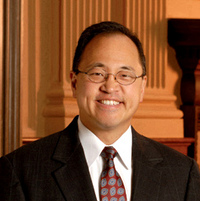 I previously posted
a pointer to Barbara Cherry’s examination of antitrust history
in response to Dave Farber’s posting of
an op-ed against net neutrality.
Dave responds:
I previously posted
a pointer to Barbara Cherry’s examination of antitrust history
in response to Dave Farber’s posting of
an op-ed against net neutrality.
Dave responds:
( INDEED I AM NOT A LAWYER AND SO I ASKED PROF. YOO, ON THE FACULTY OF PENN LAW AND ONE OF THE AUTHORS OF THE EDITORIAL, TO REPLY TO THIS NOT — IN PARTICULAR PROF. CHERRY’S COMMENTS. DAVE FARBER)— re-distribution of op-ed on Net Neutrality — a reaction and a reply from one of the authors, David Farber, Interesting People, Fri, 9 May 2008 15:23:10 -0400
Here’s Prof. Yoo’s response:
From: “Christopher S. Yoo” <csyoo@law.upenn.edu>The rest of Dr. Yoo’s response after the jump, and my response in a following post. Continue reading
Date: May 9, 2008 2:51:40 PM EDT
To: “David Farber” <dave@farber.net>
Cc: “Faulhaber, Gerald” <faulhabe@wharton.upenn.edu>Dave Farber forwarded me a recent e-mail asking for a lawyer’s reaction to Barbara Cherry’s recent presentation and paper questioning whether antitrust law can protect against the harms envisioned by network neutrality proponents. As the only lawyer among the co-authors of the op-ed that Dave, Michael Katz, Gerry Faulhaber, and I worked up for the Washington Post, I am happy to offer a few thoughts. (Those interested in a different take on the relationship between network neutrality and antitrust law may want to look here: http://ssrn.com/abstract=992837.)
Barbara’s work is based on a theory advanced by Neil Averitt and Robert Lande that would place consumer choice at the center of antitrust policy. As Averitt and Lande explicitly recognize, their theory would represent a fairly significant break (they would call it a paradigm shift) away from current antitrust law, which focuses on maximizing economic (and particularly consumer) welfare.
Interestingly, antitrust law once was quite friendly toward the consumer choice perspective that Barbara favors. (I review these developments in vol. 94 of the Georgetown Law Journal at pages 1885-87, http://ssrn.com/abstract=825669.) Early cases like FTC v. Brown Shoe (1966) and Times-Picayune Publishing v. United States (1953) invalidated exclusive dealing and tying contracts (which are among the types of antitrust practices most similar to network nonneutrality) because they infringed on unfettered consumer choice.